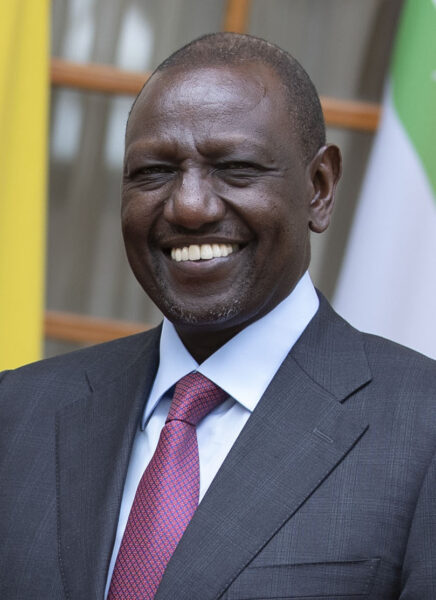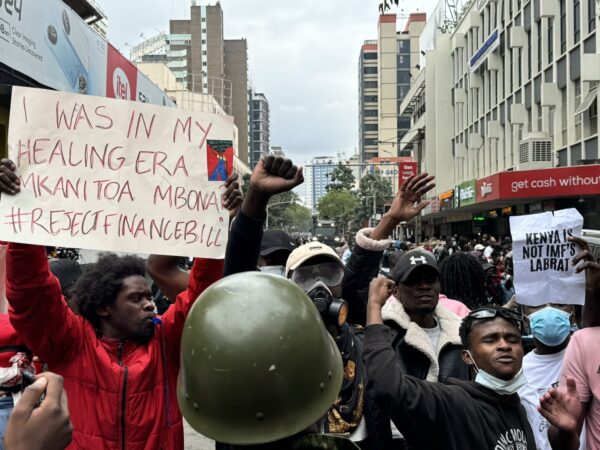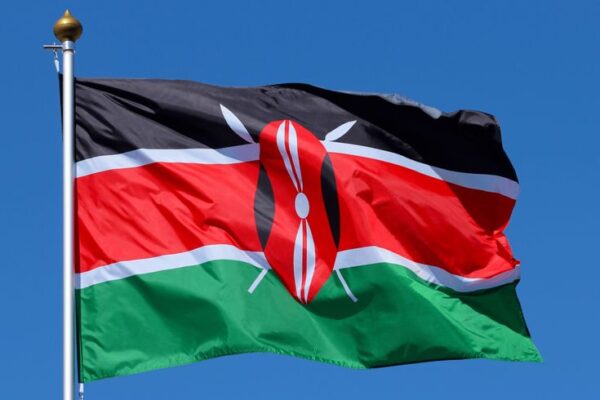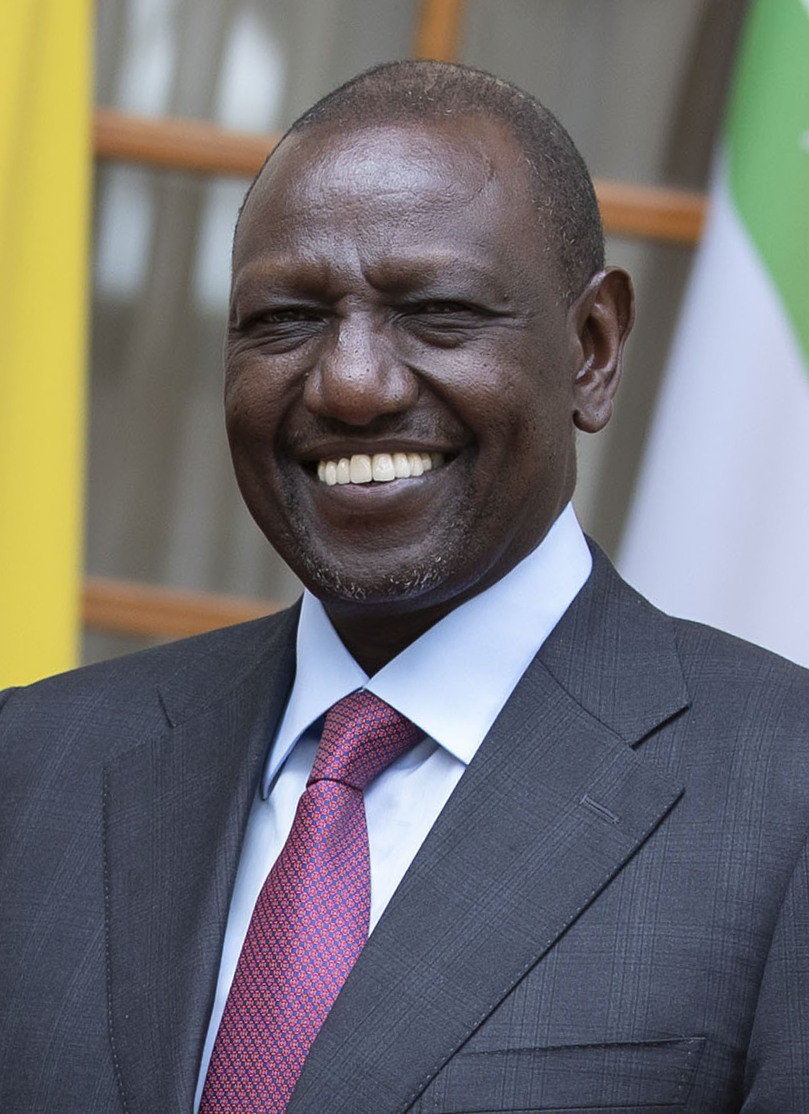Toyin Falola
I am beginning to believe the common saying that “power corrupts” quite beyond its original context, either because of the exceeding and degenerative continuing trends of African leaders from forgetting the promises they had campaigned for and the background they had come from by ruling with a fierce hand and inconsiderate motivations. Sometimes, the belief has been that the right leader for the suffering citizenry should come from the group of those who have faced similar trauma. Well, the recent trend of African leadership had rendered such belief a mere lofty assumption.

President Ruto had climbed his way to the top through the impossibilities of the African political classes and bought the hearts of the people with the various problems he faced on his way up. He was voted with the people’s conviction that they had voted a “Hustler-in-Chief” in office. I mean, he had had to hustle the sales of chicken on the roads. People should have seen that he was far from being a hustler, as he claimed after his political assignments in the country and the corruption allegations against him. But the Kenyans were further persuaded by his determination and relatability; he had said, “We want everyone to feel the wealth of this country. Not just a few at the top.” The campaign’s points against his opponent, Odinga, at the election was that he represented the image of the Kenyan hustlers against the Odinga dynasty and was only convinced to “put food on the table” of the Kenyans. I am not sure many remember that he started his political career under Moi, receiving money to purchase votes and launder images.
Like many of the average politicians in Africa, Ruto quickly lost sight of the plight of the people and stiffened the air that the poor breathed. Having this background imprinted on the back of the minds of the people, the expectation of the people as to what Ruto would use his good office to do was either to make the situation better or to ensure it does not get worse than it is. One would not blame the citizens. Perhaps the people failed to notice that his game was to serve the interests of Washington D.C. to the extent that he damaged the name of his country in support of genocide, incurring curses from those who lost their lives in the Mau Mau struggles. In enjoying the red carpet treatment offered to him by the U.S., travelling there in a charted plane paid for by nameless friends, Ruto is too naïve to remember the policy statements as enunciated by Henry A. Kissinger:

To be an enemy of America can be dangerous, but to be a friend is fatal. America has no permanent friends or enemies, only interests.
We should ask Ruto: is it true that there were American observers in the Parliament on the day they voted for the Financial Bill 2024? Maybe your political enemies made up the story. Could it also be true that parliamentarians received bribes before they voted for the bill? Another rumour? Other rumours, but who is driving the obsession to drive the bill? If the country needs to pay its debt, why not shift the burden to Ruto and his friends, who are already enjoying so much?
The task of a government is torn between the need to satisfy state realities and the welfare of the people they govern. Often, many African governments have tilted towards these economic steps without considering the welfare of their people at the very moment. They unknowingly separate the people’s wishes, experiences, and priorities from those grand economic plans and realities they claim to address. Well, leaving out the different shenanigans of the politicians in Africa and those in Kenya, policies are created without reading the room.

Ruto and his cohorts have been making policies upon policies with the claim to stabilize the economy and other supposed grand schemes for the nation. The government’s Finance Bill was supposed to cover the next financial year from July to June, giving the skeletal financial framework of the country. The Bill intends to solve the country’s many economic and financial crises by putting heavy loads on the people without thinking outside the box.
The bill increases the taxes on commodities, such as bread and annual returns on vehicles. The bill puts the Motor Vehicle Tax at 2.5% annually with a minimum benchmark of KES 5,000 and not more than KES 100,000, which is safe only for government vehicles and ambulances. Multinational enterprises are put on a 15% tax, and their annual turnover is 750 euros. This also includes digital service tax increments, adjustments to withholding taxes, digital content, and VAT. The bill introduced a 16% tax on bread and an excise duty on consumables like cooking oil and other basic items. The SMEs are faced with more taxes and liabilities than in previous years.
The supposed reasoning of the government is to generate more revenue to enable it to service the numerous debts it had incurred over the years. It targets about $2.7 billion from the taxes to service the budget deficit and make provisions for the supposed running of the government. Another justification was that the increments would allow the government to meet the IMF requirements and recommendations for Kenya’s economic restructuring and efforts to stabilize critical public services like healthcare, infrastructure, and education.

While the justifications behind these policies might appear convincing, the policies, forming the means, are way off the track to achieve any. You can not tax people out of poverty because no one gives what he does not have: Nemo quo dat non habet. At the moment, more than 36.1% of the total Kenyan population lives below the poverty line of the country, and the statistics of those living below the $1.90 per cent daily earning have been of regrettable concern as of 2023. The country maintains an unfavourable unemployment rate with a projection of an increment of 2% before the end of this year and with about 2.9 million persons unemployed. Aside from these many problems, the rate of job losses across the country has been increasing lately, with more than 70,000 job losses recorded between the end of 2022 and 2023.
You see, every act and policy of any country must gain validity from the will of the people and the welfare of the same. With the long history of suffering the people, one Ruto claimed to have hustled through, and the contemporary complications on the survival possibilities of the people, the primary objectives of any reasonable government should be to make the people as comfortable as they can get. Imposing a 16% tax on bread and oil that people find difficult to buy or any common food they long for is an evil disguised in the name of doing good. Why not limit them to eating two meals a day and drinking water for dinner?
This begs the question of why the people must be suffocated at every point of governmental inconvenience. The task is not to make policies in a vacuum but to primarily alleviate the suffering of the people at best or to ensure no complications at least. It is quite unfortunate and unfair that the poor, whom Ruto had claimed to have hustled with, are left to bear the burden while the rich and influential bask in pools of Kenyan commonwealth. The allegations of corrupt practices in the Kenyan government have been at an alarming rate, and one wonders why the government has not looked at the sabre-toothed cankerworms that eat into the economic sanity of the nation.
The Kenyan judiciary has been charged with different levels of corrupt practices, leading to some faceoff between the stakeholders. The misappropriation of the KES 20 billion that was supposedly planned for the Soin-Koru Dam restoration, The KEMSA scandal pointing to the misappropriation of health funds, including illegal awarding of tenders to the tune of about $72 million during COVID-19, the heavy lootings by Kenya Public servants to the tune of $3.8 million just by the end of June 2023, and other lavish lifestyles of officials are some of the disgraceful issues and instances that have quickened the spirit of the people against unfavourable policies. Amid this crisis, President Ruto, the supposed Hustler-in-Chief, without relating with the plight of the people and failing to show that the country is in urgent need of funds, decided to charter a private jet to both Atlanta and Washington D. C at a cost of about $1.5 million. $1.5 million on a trip when his people suffer? So, can Mr. Ruto impose a tax on sanitary pads to recoup? Is the menstruation blood needed for some kind of ritual to remain in power?
It is reasonable that when perseverance becomes too difficult, every human being will resist. This was the case in the Kenya population’s resistance to the Finance Bill 2024. If the government fails to read the room to understand what the people face, it will start a war against its citizens. After the announcement of the Bill, Ruto and the parliament have faced severe opposition and protests, and from June 18, 2024, protests had intensively started from social media and Nairobi and spread to Nakuru, Kisumu, Mombasa, Nyeri, and Eldoret. On June 20, 2024, the protest had escalated to a national crisis.
The highlight of this discussion rests on the government’s response to the expression of agitation among its people. The government faced the people like it was fighting its enemies. Some reporters claimed that about 22 people had been killed, 300 injured, and about 50 people arrested by the security operatives as of June 26, 2024. In fact, the President had claimed that the protest had turned into a threat to national security, and many “criminals” had pretended to be protesters, intending to terrorize the government. How can Ruto call the citizens he governs criminals?

The same way the economic issue is handled wrongly is how the protest escalation was handled carelessly. The arrogance of the government has blinded its eyes from the need to expediently respond to the plight of the people and catch the protest at its early stage by taking preliminary steps at achieving and not being apprehensive with the same people that put him in office. I believe that the Parliament’s insensitive attitudes that made them go ahead with the Finance Bill is an affront to democracy, which is obvious evidence of their inability to understand the people’s claims. In addition, the latter concession of the President, refusing to sign the bill, is equivalent to medicine after death. Kenya would not be erased from the map if it suspends the passing of the Bill in order to achieve peace and for a more diplomatic approach.
It is more disheartening that the treatment of the people in their biggest moment of vulnerability has come from a man who has claimed to have once been like them. A man who had promised to make their lives comfortable and one who promised to bring sanity to their welfare care. It is important that if there will be anything to savage at all, it is pertinent that Ruto and its government drop the arrogance and show more intentionality about promoting peace without violence. The first solution is not to impose more taxes on people who can barely survive: once again, you can not tax people out of poverty.
“Hustler-in-Chief” treat your people with respect and do not suffocate the suffocating citizenry anymore.

Thanks for the authentic analysis. Indeed our country is in turmoil and its only right that these leaders diabolical acts be stopped. Walter Rodney in his book ‘How Europe underdeveloped Africa,’ mentioned that, one of the reason why countries in the African continent are underdeveloped is that, they are over represented! The case is not any different in our country Kenya. We have many leaders in office who aren’t doing anything really yet they get paid lots of money! We don’t want such things to continue anymore!
Sad that we’re still battling neo-colonialism up until now!
Thanks for the advice you’ve given him!
Hopefully he’ll lend a listening ear!.
This Ruto’s government does not respect the will of the people in an extend that it sacrifice its people for interest of the west.#Ruto’s government is a big disappointment to the continent of Africa.
Your article holds promise with its insightful ideas and solid points. To unlock its full potential, consider delving deeper into the topic. Your clear writing and innovative approach are commendable, but injecting more energy could make it even more captivating. While your examples are effective, infusing them with more enthusiasm could truly elevate your piece. Overall, your article is well-crafted yet has room for enhancement. Strengthening your arguments and incorporating more compelling facts will further bolster its impact. With your evident talent, the potential for greatness is clear. I eagerly anticipate your future work and am excited to see how you continue to excel. Keep up the excellent work!
Your article demonstrates considerable promise, showcasing insightful ideas and a solid foundation. To elevate it to a truly outstanding level, consider the following enhancements: 1. Deepen your analysis by exploring key concepts more thoroughly, providing nuanced explanations, and addressing potential counterarguments. 2. Strengthen your arguments with additional evidence, including peer-reviewed sources, relevant statistics, and illustrative case studies. 3. Refine your writing style to engage advanced readers. Vary sentence structures, employ more sophisticated vocabulary, and ensure each paragraph flows seamlessly into the next. 4. Enhance the overall narrative arc. Craft a more compelling introduction that clearly outlines your thesis and a conclusion that reinforces your key points while highlighting broader implications. 5. Incorporate a more critical examination of alternative viewpoints to demonstrate a comprehensive understanding of the topic and pre-emptively address potential critiques. 6. Elaborate on the practical implications and real-world applications of your arguments. This will increase the relevance and impact of your work. 7. Draw connections to related fields or concepts, broadening the scope and appeal of your article while showcasing its interdisciplinary significance. 8. Consider incorporating more vivid examples or analogies to illustrate complex ideas, making your work more accessible without sacrificing depth. 9. If appropriate, include visual elements such as graphs, charts, or infographics to support your textual arguments and appeal to visual learners. 10. Ensure your conclusion not only summarizes your main points but also opens up avenues for further research or discussion, encouraging ongoing engagement with your ideas. Your innovative approach and clear writing provide an excellent foundation. By implementing these suggestions, you can transform your already solid work into an exceptional piece that resonates deeply with a professional audience and makes a significant contribution to your field. The potential for greatness in your work is evident. Your commitment to excellence shines through, and I’m confident that your continued efforts and refinements will yield truly impressive results. I eagerly anticipate seeing how you build upon these strengths in your future endeavors, further establishing yourself as a thought leader in your area of expertise.